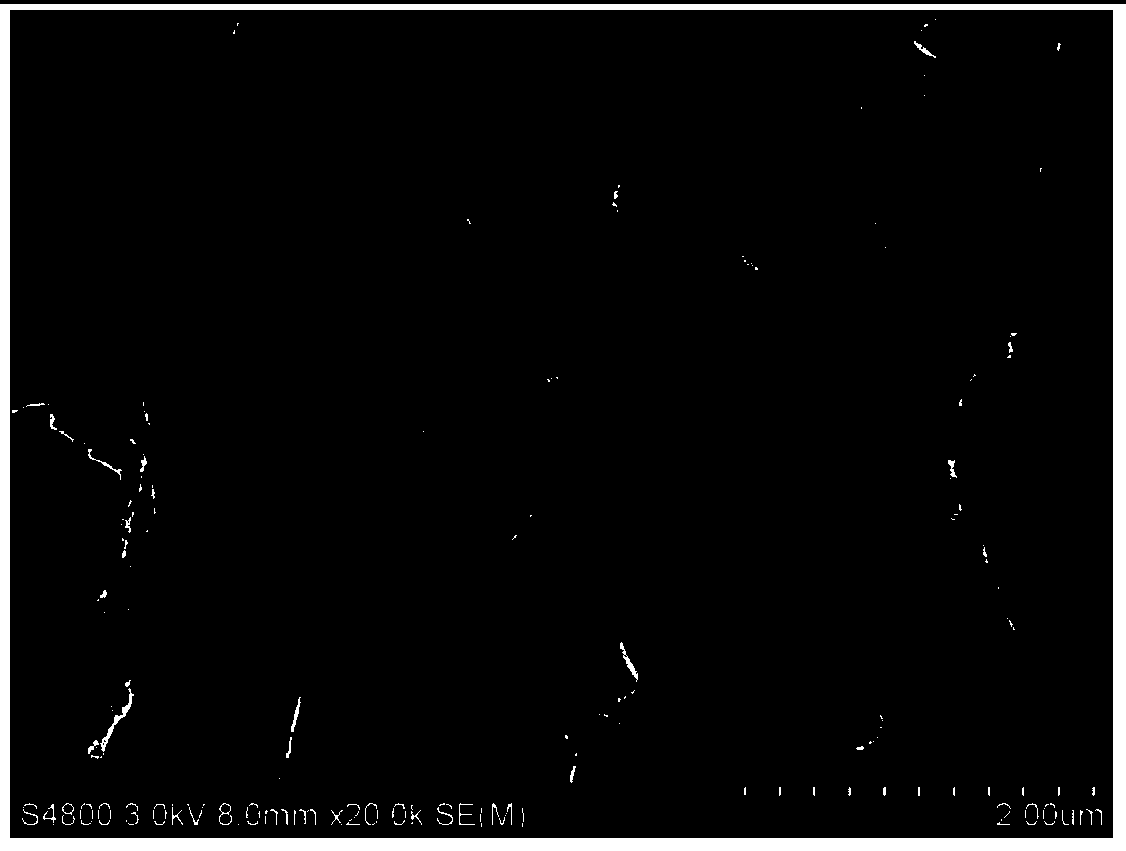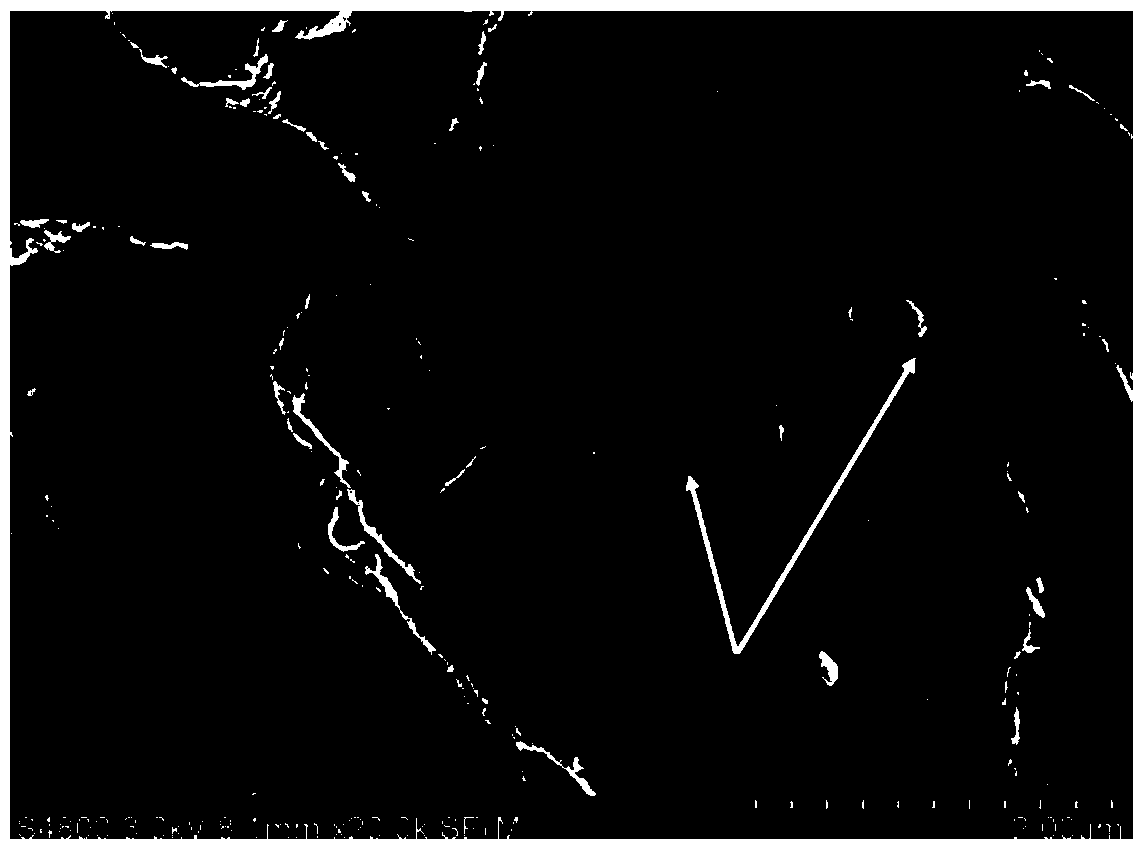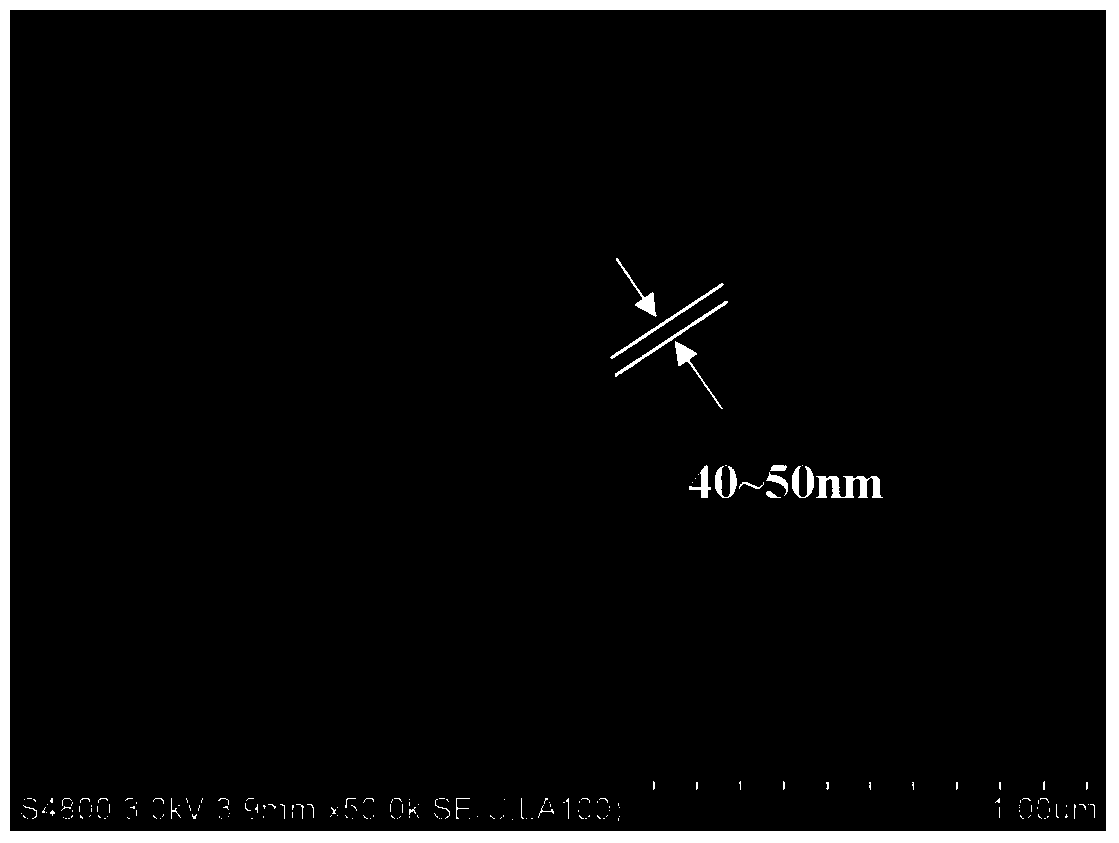A lithium ion battery silicon oxide composite negative electrode material, preparation method and use thereof
A technology of lithium-ion batteries and silicon oxide, which is applied in battery electrodes, secondary batteries, electrochemical generators, etc., can solve the problems of unconducted conductivity, poor dispersion, and poor cycle performance of materials, so as to improve electronic conductivity Effect
- Summary
- Abstract
- Description
- Claims
- Application Information
AI Technical Summary
Problems solved by technology
Method used
Image
Examples
Embodiment 1
[0097] Mix silicon dioxide and metal silicon at a molar ratio of 1:1, and make it react at 1350°C under 100Pa to generate silicon oxide gas, and make this gas under a reduced pressure of 50Pa to collect the precipitated product of the substrate in the low temperature area , that is, a silicon oxide block, and then use a planetary ball mill to pulverize the product to obtain a silicon oxide powder with a median particle size of 2.0-15.0 μm.
[0098] SiO powder and median particle size (D 50 ) with a 0.5-15.0 μm phenolic resin powder was placed in a VC mixer at a mass ratio of 90:10, the rotational speed was adjusted to 1000.0 rpm, and mixed for 0.5 h to obtain a precursor 1 .
[0099] Add the precursor 1 into the NH vacuum kneader, control the temperature of the material above 190.0°C by heating and circulating heat transfer oil, and knead for 4.0 hours until the material becomes viscous, and then quickly transfer to the sheet rolling machine for sheet rolling before the materi...
Embodiment 2
[0105] Heat-treat the SiO block obtained in Example 1 at 1050°C in an argon inert environment, and then pulverize the product with an ultra-low temperature pulverizer to obtain SiO powder with a median particle size of 2.0-15.0 μm .
[0106] SiO powder and median particle size (D 50 ) of 0.5-15.0 μm asphalt powder was placed in a mechanical fusion machine at a mass ratio of 90:10, the rotation speed was adjusted to 2000.0 rpm, and the mixture was mixed for 0.5 h to obtain the precursor 1.
[0107] Add the precursor 1 into the NH vacuum kneader, control the temperature of the material above 250.0°C by heating and circulating heat transfer oil, and knead for 6.0 hours until the material becomes viscous, and then quickly transfer to the sheet rolling machine for sheet rolling before the material cools down Treatment, control the thickness of the rolled sheet to 3.0-5.0mm, mechanically pulverize the rolled sheet after cooling, control the median particle size of 2.0-15.0μm; At 6...
Embodiment 3
[0111] Heat-treat the SiO block obtained in Example 1 at 1050°C in an argon inert environment, and then pulverize the product with a mechanical pulverizer to obtain SiO powder with a median particle size of 2.0-15.0 μm .
[0112] SiO powder and median particle size (D 50 ) of 0.5-15.0 μm citric acid powder was placed in a mechanical fusion machine at a mass ratio of 90:10, the rotational speed was adjusted to 1500.0 rpm, and mixed for 1.0 h to obtain precursor 1.
[0113] Add the precursor 1 into the NH vacuum kneader, control the temperature of the material above 25.0°C by heating and circulating heat transfer oil, and knead for 10.0 hours until the material becomes viscous; Treatment, control the thickness of the rolled sheet to 3.0-5.0mm; after the rolled sheet is cooled, carry out mechanical crushing, control the median particle size of 2.0-15.0μm; at 110° C., pressurized for 0.05 h to obtain precursor 2 .
[0114] Put the precursor 2 material in a pusher kiln, pass arg...
PUM
| Property | Measurement | Unit |
|---|---|---|
| thickness | aaaaa | aaaaa |
| particle size | aaaaa | aaaaa |
| specific surface area | aaaaa | aaaaa |
Abstract
Description
Claims
Application Information
 Login to View More
Login to View More - R&D
- Intellectual Property
- Life Sciences
- Materials
- Tech Scout
- Unparalleled Data Quality
- Higher Quality Content
- 60% Fewer Hallucinations
Browse by: Latest US Patents, China's latest patents, Technical Efficacy Thesaurus, Application Domain, Technology Topic, Popular Technical Reports.
© 2025 PatSnap. All rights reserved.Legal|Privacy policy|Modern Slavery Act Transparency Statement|Sitemap|About US| Contact US: help@patsnap.com



